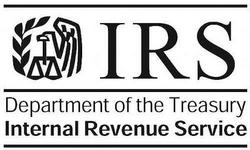Changes are coming to the Child Tax Credit (CTC) and advanced payment options for 2021 and it could affect families at tax time as some families may need to pay some of the credit back.
There are a few instances where this could happen. Your child is no longer a dependent on your tax return, your income has increased for 2021, and you no longer qualify for the total amount; for divorced couples, you alternate in claiming your child and should not have received the advance in the first place.
The old rules were that you got a $2,000 credit for children 16 and under as long as you were within certain income restrictions. With the new rule, you now get $3,600 for children under the age of six and $3,000 for children ages six to 17.
There are safe harbors that protect you from potentially having to pay back these amounts.
- Single 40,000 and 80,000
- Head of the House: $50,000 and $100,000
- Married Filed Jointly: $60,000 and $120,000
Any number that exceeds the amount listed above, based on what category you fall into, will be subject to a full repayment on your tax return. The easiest way to avoid a full repayment is to check out the IRS online portal and opt-out of advanced payments if you no longer need them. “On the IRS website, there is an option for you to unenroll if you don’t want advanced payments,” said Colin O’Shea Senior Manager and CPA with Brady, Martz & Associates in Crookston. “This will give you credit back on your tax return in one payment if you deserve it and avoid a possibility of you needing to pay back the IRS.”
You will need to opt-out of the payments if you choose that route. Otherwise, you will automatically be subject to receiving those payments.
Greg Bruley, one of the owners of H&R Block in Crookston, noted people must start looking into this now. “Starting in July this year, you can advance a part of your qualifying amount,” said Bruley. “To take the advance, you would be receiving $300 per child five or under for each month. And $250 per month for children between the ages of six and 17.”
The amount of the advancement goes up to 50 percent and will run all the way through to the end of 2021. Important things to keep in mind with the new rules include keeping any document received from the IRS and making sure to unenroll on the IRS website if you no longer want to receive the payments.



